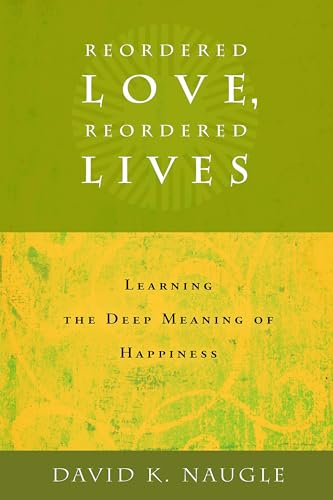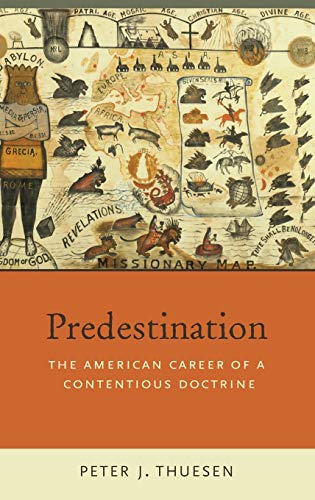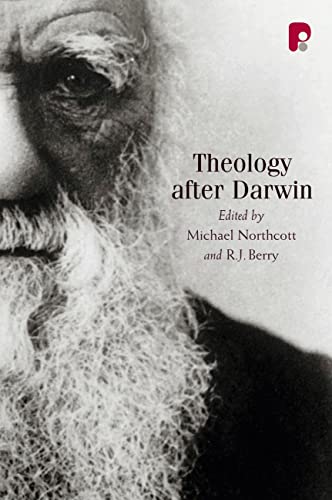The Word in Small Boats: Sermons from Oxford
Written by Oliver O’Donovan Reviewed By Greg R. ScharfWhen he lived in Oxford, Oliver O’Donovan was Regius Professor of Moral and Pastoral Theology and Canon of Christ Church Cathedral. He is now a professor of Christian ethics and practical theology at New College, University of Edinburgh. In the editor’s foreword, Andy Draycott nicely captures the emphases of this collection of individual sermons preached mainly at Christ Church, Oxford. This collection “is in a sense a theological statement about, and celebration of, preaching and the preacher” (p. vii). The thirty-two sermons, including two that are an introduction and conclusion, intend to “mirror the scope of Oliver’s theological writings” (p. ix). Though the sermons were preached from 1984 to 2006, they appear not chronologically but rather under the headings “The Mission of God’s Word,” “The Community of God’s Word,” “Tradition, Truth and the Public,” and “Launched upon Life by God’s Word.” Each sermon has a short title, a briefly quoted text, a date, and on sixteen occasions some further information about the church calendar or some contemporary event that provides some relevant context to the sermon. The introduction and conclusion and the final sermon in each section end with a short prayer. The sermons are from two to six pages of typescript and reflect what Dr. O’Donovan spoke since he speaks from “a prepared full script” (p. viii).
O’Donovan has a capacious mind and has stocked it well. The sermons themselves are usually a cross between a homily and an oral essay, almost always starting with or referencing a biblical text called for by the lectionary. Many sermons begin with a reference to the original setting of the passage and then bridge to wide-ranging and nuanced insights about the contemporary world. His style is lucid but dense with rich content that would challenge the most attentive listener to absorb even a fraction of it in an oral presentation. Often the sermons notice a surprise in the text and exploit it rhetorically to make a point. Provocative one-liners are common. For instance, in an advent sermon he writes, “When Christmas loses contact with past history, it loses contact with the future” (p. 54). In response to the crisis surrounding the election of Gene Robinson as Bishop of New Hampshire, O’Donovan preached on 1 Kgs 13:3 and wrote, “The servant of God’s word must be the servant of the word only, beholding to nothing and no one else” (p. 65).
Many sermons are pastorally rich and touch on such topics as civility (pp. 101–7), true spiritual maturity (pp. 160–61), marriage (pp. 150–55), and facing death (pp. 162–65). O’Donovan makes helpful but very subtle distinctions, such as those between “authority” and “authorization” (p. 42), “space” and “place” (p. 86), “reflective” and “deliberative” (p. 157), and “religious liberty” and “religious freedom” (p. 167). He does not hesitate to interpret texts allegorically: Job “is all of us when we are suffering,” and “the comforters, on the other hand, are all of us when we are not suffering” (p. 163). He freely opts for opinions on authorship, for instance, of Matthew and Isaiah, that more conservative evangelicals will not embrace (pp. 10, 140), but he respects the canonical text and gives it a “privileged place at the heart of Christian liturgy” (p. 73).
What makes these sermons remarkable is not that they are necessarily closely tethered to the text. Instead they provide an opportunity for O’Donovan to offer noteworthy insights and provocative wisdom. For instance, in a sermon on the part of Ps 95:5 that says, “The sea is his and he made it,” O’Donovan traces both negative and positive implications of this biblical assertion. Describing how its incomparable beauty delicately balances chaos and order, he writes, “The sea, as the Bible understands, is the closest thing on earth to primordial chaos. Of itself the element has no form, no borders, no stability; it affords no point of rest, no place for the sole of the foot. Yet it is bounded chaos, for God has drawn the coastlines round it, giving it its sinuous shape, and has pinned it in a press between the upward thrust of the ocean floor and the downward thrust of the weight of air. He has made, as it were, a frame fit for the most unframeable of elements, so creating that fragile equilibrium and containment that pierces us to the heart” (p. 131). He goes on to describe how in the sea God has provided both an escape from ourselves and a teacher through whose class we must pass to reach port.
This volume is rich devotional reading for those willing to be stretched by its insights. The sermon “Possessing Wisdom” (pp. 144–49), preached at the beginning of the university year, is a good reminder to all of us who toil in academic settings. Both the style and content of these sermons will perhaps make them more accessible for those who have read a good deal of theology than for those who have not. The book shows how O’Donovan connects the roles of teacher and preacher—not a bad thing to learn for those who read this journal. Few who aspire to imitate O’Donovan’s preaching style will succeed because of the sheer breadth of knowledge his preaching presupposes. This failure may not be a complete tragedy since Charles Simeon’s counsel is still wise: we are not to preach the best sermons we can preach but the best our listeners can receive.
Greg R. Scharf
Trinity Evangelical Divinity School
Deerfield, Illinois, USA
Other Articles in this Issue
Most of us, I suspect, develop fairly standard ways, one might even say repetitive ways, to appeal to the motivations of our hearers when we preach the gospel...
How to Write—and How Not to Write—A Review: An Appreciative Response to Reviews of Ancient Near Eastern Themes in Biblical Theology by Dempster and Edgar
by Jeffrey J. NiehausI want to thank Themelios for the unusual opportunity to interact with two reviewers of my book Ancient Near Eastern Themes in Biblical Theology...
Parallels, Real or Imagined? A Review Article of Jeffrey J. Niehaus, Ancient Near Eastern Themes in Biblical Theology
by William EdgarWhen I came to Westminster Theological Seminary in Philadelphia as a young student in the 1960s, two things struck me...
Why Evangelicals Should Ignore Brian McLaren: How the New Testament Requires Evangelicals to Render a Judgment on the Moral Status of Homosexuality
by Denny BurkIn 2006 on Christianity Today’s leadership blog, Pastor Brian McLaren urged evangelical leaders to find a “Pastoral Response” to their parishioners on the issue of homosexuality...
A Member of the Family or a Stranger? A Review Article of Jeffrey J. Niehaus, Ancient Near Eastern
by Stephen DempsterWe cannot overstate how important knowing the context is for understanding the significance of any communication, whether that is a simple word, sentence, paragraph, larger text, sign, photograph, or cultural cue...







